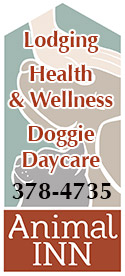Press Release on Enterovirus in SJ County
Posted October 3, 2014 at 5:16 am by Tim Dustrude
Here’s a note from county Health Officer Frank James:
This is not urgent but routine.
The following press release provides information about the current infections being seen in our region and in our community. Please do not hesitate to contact me directly if you have more questions. There has been at least one case of enteroviral infection confirmed by laboratory testing. The final testing to confirm that this particular infection is or is not the D-68 strain is limited to those that are in intensive care units. It would be very surprising if this case were not the D 68 strain given the clinical picture and course of the infection. Fortunately it was not so severe that it required hospitalization. It appears that this infection has reached a peak and is not less common in the judgement of community clinicians that see a large number of pediatric patients.
Frank James MD
Health Officer
San Juan County
Outbreak of Enterovirus D68 Spreads
It is likely that D68 enterovirus has reached the San Juan Islands. A case has been reported that is positive for enterovirus, further testing is only done by the CDC if the cases causes severe illness and the individual requires intensive care management. Some children with the infection have also has limb paralysis (polio virus is also a member of the entrovirus group) have been identified in other states as well.
Although all ages get infections adults have often had this or related infections and have some immunity to the severe effects of the disease. “Parents and teachers should watch children for difficulty breathing or wheezing, particularly in children with a history of asthma”, said Dr Frank James, Health Officer for San Juan County. He went on to say, “These children may become very ill and require emergency room evaluation or even hospitalization for breathing problems. If your child becomes progressively sicker immediate evaluation is needed and urgent evaluation by health care providers and when if your child has severe respiratory distress you should call 911”.
Enteroviruses are common human viruses that can cause respiratory illness as well as febrile rash illness and neurologic illness. The current outbreaks of Enterovirus D68 are resulting in significant numbers of children with respiratory infections requiring emergency department visits and hospitalizations, primarily for difficulties with breathing and severe asthma. Children with asthma appear to be more susceptible to serious illness from the virus.
Because this particular strain of enterovirus has been uncommon in the past, the ways it spreads are not as well understood as other enteroviruses. It likely spreads from person to person when an infected person cough, sneezes, or touches contaminated surfaces.
EV-D68 has been reported to cause mild to severe respiratory illness, i.e. runny nose, cough, difficulty breathing, with and without fever. Most persons have these typical cold-like symptoms. However, a minority may have more serious infections, particularly children and adults with pre-existing asthma.
People should use the same judgment as usual about when to see (or take a child to see) a health care provider: Anyone who has difficulty breathing or who appears seriously ill should be evaluated promptly by a health care provider. Person with asthma should be sure their asthma symptoms are under control, and see a health care provider if they develop respiratory symptoms and their asthma worsens. Adults and children with non-severe enterovirus infections do no need to see a health care provider and do not need to be tested. Should you develop the enteroviral symptoms, you should stay at home for 10 days or until respiratory symptoms are absent or you are cleared by your physician.
There is no specific treatment for these viral infections. Some people with severe illness may need to be hospitalized and receive intensive supportive therapy. There is no vaccine to prevent enterovirus infections. To decrease the risk for illness:
• WASH HANDS often with soap and water for 20 seconds (alcohol-based gel is not as good as hand washing for these viruses )
• Avoid touching eyes, mouth, and nose with unwashed hands
• Avoid contact with ill people; STAY HOME IF YOU ARE ILL.
• Avoid kissing, hugging, and sharing cups or eating utensils with people who are sick.
• Disinfect frequently touched surfaces, such as toys, doorknobs, countertops, faucets with a 1:10 bleach solution.
You can support the San Juan Update by doing business with our loyal advertisers, and by making a one-time contribution or a recurring donation.
Categories: Around Here
One comment:










One comment...
Appreciate the effort to get information out, but this “press release” is pretty dense and hard to digest. Would be great to see a few key points highlighted at the top, and then more info below for those who really want to dig in- not the other way around. Putting the most useful info at the end suggests a lack of understanding of the way people process written information. Do appreciate the outreach, but if goal is really to educate, there’s lots of room for improvement!
By submitting a comment you grant the San Juan Update a perpetual license to reproduce your words and name/web site in attribution. Inappropriate, irrelevant and contentious comments may not be published at an admin's discretion. Your email is used for verification purposes only, it will never be shared.